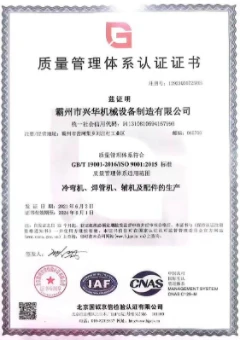plastic tube making machine
The Advancements and Applications of Plastic Tube Making Machines
In the ever-evolving world of manufacturing, plastic tube making machines play a pivotal role in the production of various plastic products. These machines are designed to extrude and shape plastic materials into tubes of different lengths, diameters, and wall thicknesses. With continuous advancements in technology, these machines have become more efficient, environmentally friendly, and versatile, catering to an array of industries—from packaging to construction.
Understanding Plastic Tube Making Machines
Plastic tube making machines utilize a process known as extrusion. In this process, plastic pellets are heated and melted, then forced through a die to create a continuous tube. This tube is subsequently cooled, cut, and packaged for distribution. The machines can process a wide range of thermoplastics, including polyvinyl chloride (PVC), polyethylene (PE), polypropylene (PP), and various other polymers.
The design of these machines has undergone significant transformations over the years. Modern plastic tube making machines are equipped with advanced features such as automatic feeding systems, digital control panels, and real-time monitoring capabilities. These enhancements ensure precision in production and minimize waste, making the manufacturing process more sustainable.
Applications Across Industries
Plastic tubes are versatile products that find applications in numerous sectors. One of the primary uses of plastic tubes is in packaging. Many consumer goods, such as cosmetics, pharmaceuticals, and food items, require tube packaging to maintain product integrity and extend shelf life. The use of plastic tubes in this sector is favored due to their lightweight, durability, and cost-effectiveness.
In the construction industry, plastic tubes are employed in plumbing and drainage systems. They provide a reliable solution for transporting liquids and gases, thanks to their corrosion resistance and flexibility. Additionally, plastic tubes are used in electrical conduits for protecting and routing electrical wiring, demonstrating their multifaceted utility.
Medical and healthcare applications are also significant. Sterile plastic tubes are commonly used for packaging various medical supplies, including saline solutions and pharmaceuticals. The ability to manufacture high-quality, non-toxic tubes in a sterile environment is crucial for ensuring the safety and efficacy of medical products.
plastic tube making machine

Innovations Driving the Industry
Recent innovations have led to the development of eco-friendly plastic tube making machines. With the increasing emphasis on sustainability, manufacturers are now focusing on producing biodegradable or recyclable tubes. These innovations demonstrate the industry’s commitment to reducing environmental impact. Some machines are now equipped with technologies that allow for the recycling of plastic waste generated during the manufacturing process, further contributing to a circular economy.
Automation and smart technologies are also making waves in tube manufacturing. The integration of Industry 4.0 concepts, such as IoT (Internet of Things) and big data analytics, enables machine operators to monitor production in real-time, predict maintenance needs, and optimize overall performance. This level of automation not only enhances efficiency but also reduces labor costs and human error.
The Future of Plastic Tube Making Machines
Looking ahead, the future of plastic tube making machines appears bright. As global demand for plastic products continues to rise, the industry will need to adapt and innovate. Upcoming regulations focusing on environmental sustainability will likely drive further advancements in machine technology, leading to the development of more efficient and sustainable production methods.
Moreover, the push towards customization is expected to grow. Industries will increasingly require specific sizes, shapes, and material compositions of plastic tubes to meet their unique needs. Manufacturers who invest in flexible, adaptable machinery that can accommodate these variations will have a competitive edge in the market.
Conclusion
Plastic tube making machines are an essential element in the manufacturing landscape, driving the production of versatile products that serve various industries. With technological advancements and a focus on sustainability, these machines are evolving rapidly, paving the way for new applications and ensuring efficiency in production. As we move forward, the industry must continue to innovate and adapt to meet the challenges of a changing world, ensuring that plastic tube manufacturing remains robust and sustainable for years to come.
-
High Frequency Straight Seam Welded Pipe Production Line-BzZhou Xinghua Machinery Equipment Manufacturing Co., LTD.|line pipe steel&welded gas pipeNewsJul.30,2025
-
High Frequency Straight Seam Welded Pipe Production Line-BzZhou Xinghua Machinery Equipment Manufacturing Co., LTD.|High Precision&Automated SolutionsNewsJul.30,2025
-
High Frequency Straight Seam Welded Pipe Production Line - BzZhou Xinghua Machinery Equipment Manufacturing Co., Ltd.NewsJul.30,2025
-
High Frequency Straight Seam Welded Pipe Production Line-BzZhou Xinghua Machinery Equipment Manufacturing Co., LTD.|Precision Welding, High EfficiencyNewsJul.30,2025
-
High Frequency Straight Seam Welded Pipe Production Line|BzZhou Xinghua|Precision Welding&EfficiencyNewsJul.30,2025
-
High Frequency Straight Seam Welded Pipe Production Line - BzZhou Xinghua|Precision Engineering&EfficiencyNewsJul.30,2025


